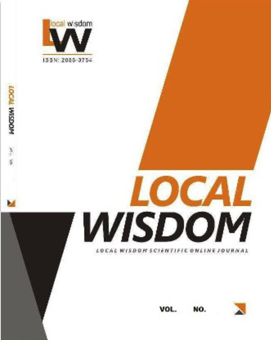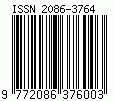Significance of Informal Trading Activities in The Emergence of Urban Spatial Vernacular: Case Study of Lagos Island, Nigeria
DOI:
https://doi.org/10.26905/lw.v13i1.5177Keywords:
informal trading, urban space, built environment, vernacular, sustainabilityAbstract
Informal trading activities such as street hawking and sedentary trade have assumed a prominent role in public space use in Lagos Island. They have contributed significantly to the Island’s built environment morphology as an urban commercial centre having a vernacular nature and outlook. This paper seeks to examine the spatial impact of informal trading activities on the public space by understanding the background issues in order to evolve a spatial based framework for urban sustainability. To this end, the paper adopts field survey methodology with Isale Eko, Lagos Island as the case study area. The theoretical framework, based on Henri Lefebvre’s spatial triad is the underpinning guide for the field survey. This is supported with Socio-cultural and Linguistic methods in Anthropology to obtain Primary data, which are descriptively presented. Respondents are nominated using stratified random selection, target groups and participants’ observations. Findings reveal that informal trading activities evolve the public space as social space through vernacular and thus, connote socio-cultural expressions in order to ensure livelihood and wellbeing. It further suggests a spatial adaptation strategy to mitigate the challenge of high land use and population density of the island which, from a conventional urban land use perspective, indicates spatial conflict and contestation, hence, a problem. The paper therefore concludes by recommending an inclusive, postmodernism approach which adopts vernacular as a dynamic, sustainable panacea to address urban spatial challenges.
Â
Downloads
References
Aduwo, A, et al, (1999) in Olaseni A. M. (ed.), (1999). Urban and regional planning in Nigeria: a collection of readings. A publication of the Nigerian institute of Town planners, Lagos State Chapter
Akpenyi, M. E. (2007). Culture and street trading in Lagos metropolis, Journal for sustainable development. 1(2), 78 – 90.
Altman, I., and Zube, E., (1989). Public places and spaces, Vol. 10. New York: Plenum Press.
Badshah, A. A., (1996). Our urban future, new paradigms for equity and sustainability, London & New Jersey: Zed Books Limited.
Bilgiç, Ç. E (2013). The social production of space: occupation, appropriation and boundaries of the dwelling in the case of Ürgüp. Department of urban design and landscape Architecture.
Briassoulis, H. (1999). Sustainable development and the informal sector: An uneasy relationship? The Journal of Environment & Development, 8(3), 213-237.
Canter, D. and Stringer, P (1975). Environmental interaction. London: Surrey University Press.
Carmona, M. et al (2004). Living places: caring for quality. Office of the deputy prime minister, London.
Carmona, M. (Ed.). (2010). Public places, urban spaces: the dimensions of urban design. Routledge.
Carr, S., et al (1992). Public space. Cambridge: Cambridge University Press.
Dalsgaard, P., et al (2011). Understanding the dynamics of engaging interaction in public spaces. In Human- Computer Interaction–INTERACT 2011, pp. 212-229. Springer Berlin Heidelberg.
Harvey, D. (1973). Social Justice and the City, Arnold, London.
Hayden, D (1995). The power of place: urban landscapes as people's history. Cambridge: Massachusetts Institute of Technology Press.
Kudva, N. (2009). The everyday and the episodic: the spatial and political impacts of urban informality. Environment and planning. A, 41(7), 1614.
Kurniawati, W. (2012). Public space for marginal people. Procedia-social and behavioural sciences, 36, 476- 484.
Lefebvre, H. (1971). Everyday Life in Modern World (S. Robinovitch, Translated). Allen Lane, London.
Lefebvre, H. (1991). The Production of Space (N. S. Donald, Translated). Blackwell Publishing, London.
Low, S. M. (1996). Spatializing culture: the social production and social construction of public space in Costa Rica. American ethnologist, 23(4), 861-879.
Memarovic, N., et al (2012). Using public displays to stimulate passive engagement, active engagement, and discovery in public spaces. In Proceedings of the 4th Media Architecture Biennale Conference: Participation, pp. 55-64
Modarres, A. (2006). Urbanization and the revolution: An introduction to the special issue. Cities, 23, 405-406.
Moudon, A V. (1987). Public Street for Public Use. New York: Columbia University Press.
Nigeria, (2010). Nigeria at 50: A compendium. 1st October Publishing. Souvenir edition, 490 – 499.
Payne G. K. (1977). Urban Housing in the Third World, L. Hill, 1977.
Rakodi, C., & Lloyd-Jones, T. (Eds.2002). Urban livelihoods: A people-centred approach to reducing poverty. Routledge.
Rapoport A (1969). House Form and Culture. Prentice-Hall, 1969.
Setiawan, Bobi. (2004). Ruang Publik Dan Modal Sosial : PrivatisasiRuang Di Kampung. InfoURDI, Vol. 17, April-Juni.
Solomon-Ayeh, et al (2011). Street vending and the use of urban public space in Kumasi, Ghana. The Ghana Surveyor. (4) 1, 20 – 31.
Stake, R. E. (1995). The art of case study research. Sage.
Watkins, C. (2005). Representations of space, spatial practices and spaces of representation: An application of Lefebvre’s spatial triad. Culture and Organization, 11(3), 209-220.












